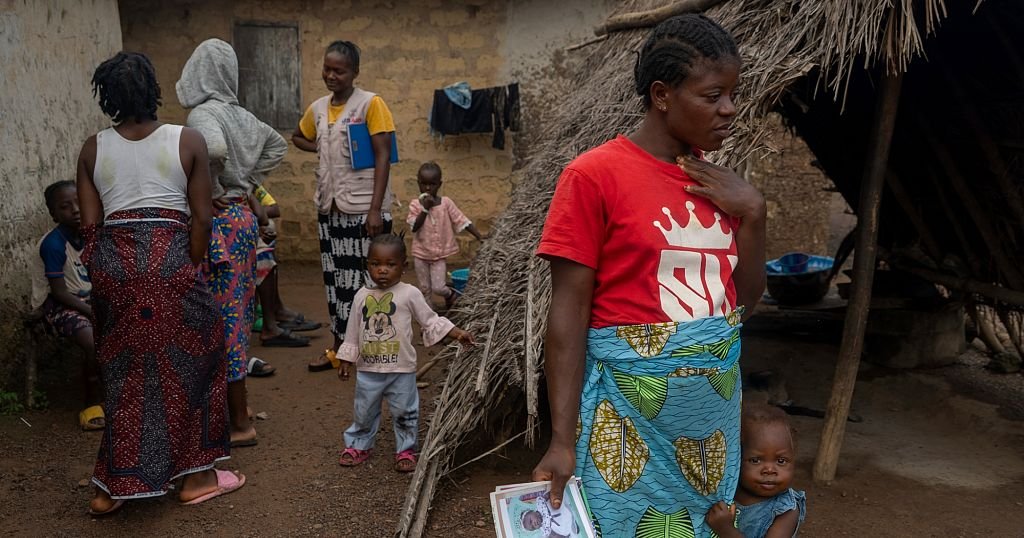Africa
Liberia’s health sector stares at a crisis as USAID comes to an end

In downtown Monrovia, signs of Liberia’s ties to the U.S. can be seen everywhere.
The capital is named after former U.S. President James Monroe, and green American-style street signs and yellow school buses are a common sight in the landscape. Liberia’s flag, at first glance, might be mistaken for the Star-Spangled Banner.
The ties between the two countries are stronger than most know. Liberia itself was established in the early 1800s to relocate freed slaves and free-born Black people from the United States.
Despite this, the country is one of many around the world that is now facing a future without USAID.
Support from the U.S. accounted for almost 2.6% of the gross national income, the highest percentage among all countries in the world, according to the Center for Global Development.
Liberia deputy finance minister Dehpue Y. Zuo, who is responsible for drafting the development budget, said he acknowledges the U.S.’ right to make its own decisions, but felt there “should have been a transition”.
USAID funding impacted nearly every sector of Liberian society, from education to healthcare to forest conservation.
However, most of the U.S. funding went to Liberia’s health system, accounting for 48% of its budget.
It funded malaria control, maternal health programs, HIV/AIDS treatment and community health programs. It financed hundreds of health projects run by aid groups.
Far from Monrovia’s densely packed streets, in Sarworlor, a village only accessible by motorbike, Roseline Phay is one of many who have had their lives turned upside down by the cuts.
Phay, 32, is a farmer, and already had two daughters when she went to the closest clinic in a town called Palala, looking to get contraceptives.
Her younger daughter, Pauline, was 18 months old and still breastfeeding, and she wasn’t ready to have another baby.
“I am a farmer. I have this little child on my back and the other child in my stomach, suffering,” she said.
“We are begging for medicine. If they bring it to Palala or Fhokoleh, even if it can’t come to the community, I will walk to Palala or Fhokoleh. But there’s no medicine.”
She’s about five months pregnant now – she can’t know for sure because she hasn’t been able to get any prenatal care or scans.
When she stopped breastfeeding, Pauline became malnourished, a condition easily preventable with nutritional supplements that USAID used to provide.
Liberia received an average of $527.6 million in aid annually between 2014 and 2023, according to the finance ministry.
This year, Liberia was supposed to receive $443 million, but the total estimated impact of the cuts is $290 million — essentially what hadn’t been disbursed yet.
USAID funding built schools and health clinics, provided training for teachers and doctors and gave scholarships for study in the U.S.
It supported small-scale farmers and paid for school meals.
Morris Wamah, the director of the Liberian Initiative for Developmental Services, which previously worked on implementing USAID programs focused on land ownership, said that the work he was doing was seen as a vital peacekeeping effort, as conflicts over land have erupted since Liberia’s civil war ended.
However, he emphasized the widespread dependence on U.S. support in Liberia, echoing the deputy finance minister’s contention that the funding cut should have been implemented gradually so that Liberia could build up its own capacities.
“I can just imagine, if the way USAID pulled out, if WHO pulls out and maybe the World Bank too pulls out, Liberia is going to collapse.”
